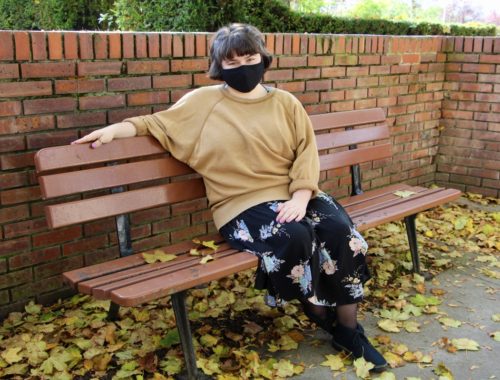
How Mastering French Helped Me Learn Even More Languages
As a self-proclaimed Francophile living in France, you might think that I’m only interested in French language and culture. While it is true that I love all things French, I am also very globally-minded. In fact, learning to speak French sparked within me a broader fascination with studying languages and seeking to understand other cultures. Since mastering French, I have dabbled in Spanish, Italian, Arabic, and German. Though I’m nowhere near an advanced speaker of any of these languages, it’s clear that my French fluency affords me an advantage when it comes to language learning in general.
Confidence to Speak
Speaking aloud is an important and efficient method of communication in any language. When I was a novice French-language learner, I struggled to find the confidence to produce my first spoken sentences as I feared making mistakes. Now that I am a fluent speaker of French, those fears have subsided. As I study more foreign languages, I have fewer inhibitions when it comes to speaking early on in the learning process and I don’t worry nearly as much about making mistakes. Messing up is an essential part of learning, and the occasional mistake doesn’t keep me from being understood on the whole in French or in any other language.
Basic Concept Overlap
Despite all languages having their idiosyncrasies, learning one forges the path for learning more. In learning French to fluency, I acquired countless basic concepts that many other languages have in common. Take grammar, for example. When it came time to study German verb conjugations, Spanish verb tenses, and Italian indirect object pronouns, I knew exactly what to expect. Understanding the key principles of learning a language is half the battle, and once you have the fundamental notions down, learning more languages becomes even easier.
Go-To Resources
The fact that I am already familiar with the language-learning resources that are effective for me is another helpful way that learning French prepared me to study other languages. From listening to podcasts, to using smartphone apps, to participating in language exchanges, to watching content on streaming platforms, I know exactly where to look for useful resources when I’m studying a language. In this way, studying French allowed me to develop a personalized language-learning method that I can apply to any language I’m interested in speaking.
Scientifically Proven
Still not convinced? Don’t take my word for it! Studies show that learning foreign languages can increase the ease with which we learn subsequent languages. Experts believe that those who are fluent in two languages have an easier time learning a third language than those who are monolingual. Bilingualism, and the increased linguistic and cultural knowledge that comes with it, has positive effects on the learning process of a third language. Studying a foreign language can therefore produce a ripple effect, helping you to not only acquire one foreign language, but also priming you for success in more languages.
For me, learning French has been the gift that keeps on giving. Are you a language lover too? What languages do you speak and what languages are you learning? Let me know in a comment!
You May Also Like

How Learning French Changed My Life
September 4, 2019
How to Celebrate Halloween in France as a Fall-Loving American
October 14, 2020


3 Comments
Maurice
Hi Jalen & Maria,
French is my 3rd foreign language, Spanish my 2nd, English my native language.
Learning French AFTER Spanish was not as easy some might suspect. French is particularly interesting becuase (and this list is far from exhaustive):
A) It’s not pronounced the way it’s spelled – so, even reading all day will not exactly help you understand when someone speaks to you;
B) there are a slew of homonyms that will have you thinking someone say A, but they actually said B;
C) Unlike Spanish, French speakers tend to speak in a whispered tone at times; words just have a lot of aspirated sounds making it hard to distinguish what was actually said; and
D) both French and Spanish have Rs that can give foreigners problems; and lastly
According to the U.S. government, language difficulty really depends on what your native language is. If you’re American, Russian will be very hard. If you’re Polish, not so much. Interestingly, while Spanish and French are classified in the same category by the U.S. government, French is considered slightly more difficult and takes a few more hundred hours to reach a resonable level, particluarly because of the obtacles highlighted above.
So, AS A NATIVE ENGLISH SPEAKER, if you have French under your belt, Italian and Spanish will most likely come fairly easy. Conversely, if you learn Spanish and Italian first and French last, while you may not have trouble with the grammar, you’re likely to have an uphill battle when it comes to simply understanding native French speakers who are not making concessions for the fact that you’re still learning the language.
Sadly, there are no good programs out there that tackle this. I’m not even talking about the difference between “je suis” vs. “s’chui” – there’s just a whole series of how French speakers use shortcuts to say the most basic things that simply aren’t taught in books. And when you can’t even distinguish the words coming out of their mouth, you can’t even say: “Teacher, my friends said something like …blah, blah, blah.” So, it is an uphill battle. Definitely not insurmountable by any means, but immersion helps.
I just started classes this week in Paris and I have been faking it a lot, just getting the gist. And the fact that everyone is wearing masks doesn’t make it any easier. But, when the mask come off, I’ll be ahead of the game and hopefully I will see some big gains.
Temi
I was pleased to find out about your youtube channel and your blog post. I must say this post is amazing ”well written” I’m currently learning french, merci beaucoup Jalen & Maria.
Jalen & Maria
Thanks for watching and reading!